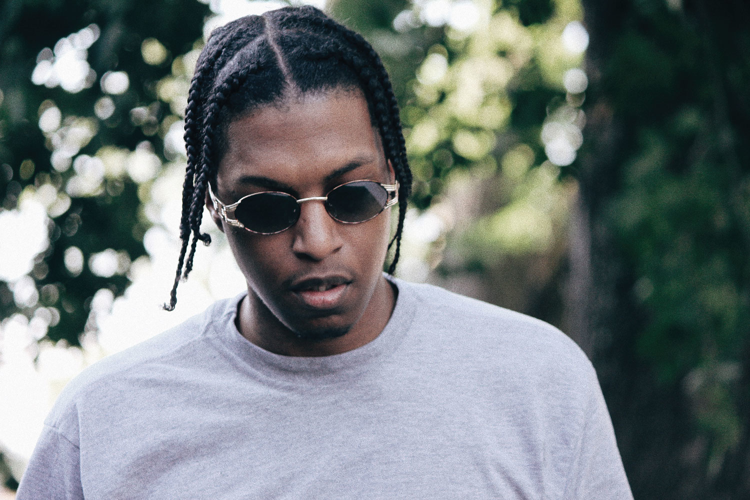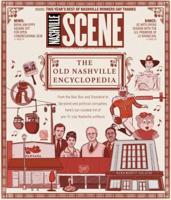
It’s been almost a decade since Mike Floss spit the line “Decent on the hooks / But better on the melody” on one of Nashville’s all-time-best yet all-but-forgotten Aughts rap tracks. Floss was using the name Openmic then, and the line came from his guest feature on “We Gon’ Make It,” a deep cut on the 2007 release Foreplay: The Mixtape by his buddy Future (who started going by Fyütch after the better-funded Atlanta rapper named Future came along). Openmic was the junior MC on the track, but the evidence was clear to anyone listening that his star was gonna burn bright. That voice, that flow — he had a musicality and verbal dexterity that set him apart from the pack, seeming unstuck in time. He offered an example of true-school technique during the height of crunk.
Ten years later, plenty has changed. Huge cultural shifts have taken place: We’ve had eight years with our first black president, 10 months with our first orange president, a major financial crisis and enough tragedy here and abroad to make even the most optimistic among us question whether or not “we gon’ make it.” The entire music industry has changed, shaken by years of radically shifting listening habits that have left many an insider lost and confused, while the means of distribution in the underground hip-hop world have changed from Blogspots and CD-Rs to streaming services and video sites.
Floss has changed, too, and not just his name. He’s way better than just decent on the hooks that fill his debut album Tennessee Daydreams (a record so good that we crowned it Best Hip-Hop Album in this year’s Best of Nashville — read more about that right here). On this follow-up to a string of superb mixtapes, Floss shows how a first-rate rapper can also be a world-class songwriter, fulfilling the promise he showed so many years ago and doubling down on the art and craft of hip-hop. His journey from backpacker classicism through trap-era modernism has allowed him to deconstruct the entire genre and reassemble it in a fashion that straddles the line between the traditional and the progressive. Tennessee is a work of refined maturity and intellectual curiosity — an open emotional vein pumping out joy and sadness, anger and empathy. It’s an album that marks a major leap in Floss’ abilities as a songwriter, musician and storyteller. After a decade of hustle, Floss has positioned himself as an artist ready to ride the waves of change in the music industry and beyond.
“I don’t really stress knowing where I’m going in the beginning, I just start making music,” Floss tells the Scene. “If I try to end at a particular point, everything is going to sound forced. It’s going to sound like I’m trying to create a false narrative. I want to just make the best songs I can make … and then figure out what story those songs tell.”
Tennessee Daydreams is a story rife with detail and brimming with pathos, a drive through Music City and a meditation on the lives lived there. Name-dropping Knock-Out Wings and casually mentioning that he “went to church with the Winans,” Floss spins tales of late-night Nashville, capturing all the weariness that sets in after the clubs close. When Floss ponders, “How you make it out a city known for its banjos?” over a deep warbling organ and mournful, minimal guitar line on “Cotton Candy Sky,” he taps into a wellspring of emotion that anyone who has ever worked outside of Nashville’s mainstream can understand. On the hook, incidentally, Floss sounds like Sting at his smoothest and strangest.

When Floss raps, “I’m way too, way too black for Broadway / From the 615 / For the whip,” on album closer “Piñata,” he manages to casually convey a scathing indictment of the inherent racism in the city’s primary marketing pitch. It’s a mix of deep vibes and heady concepts that harkens back to the Golden Age of hip-hop and stands shoulder to shoulder with current boundary-pushers like Kendrick Lamar, Childish Gambino and Princess Nokia. He has left behind the producer-dominated hierarchies of the mainstream hip-hop industry and achieved a new level of sonic self-actualization.
“I’m not rich, so I don’t really get anything out of people rapping about their lifestyle, ’cause I don’t relate to it,” explains Floss. “And why would I listen to all of this other stuff when there’s so much good music in Nashville? Why would I listen to all this other stuff that doesn’t speak to me and my experience?”
The way Floss processes his surroundings; the way he works through the entire city as he tells his story, well beyond the mythology and tourist traps; the way he filters the spectrum of the underground music community into his tunes — all of that work paints a portrait of New Nashville that is vibrant, complex and nuanced. Floss goes beyond the cranes and pedal taverns deep into the world of student loans, overdrafts and “days a little darker now” that are shaping the psychological landscape of Music City. But if anything, Floss’ engagement of the darkness delivers on the promise he made a decade ago when I first heard him: We gon’ make it.
Email music@nashvillescene.com






